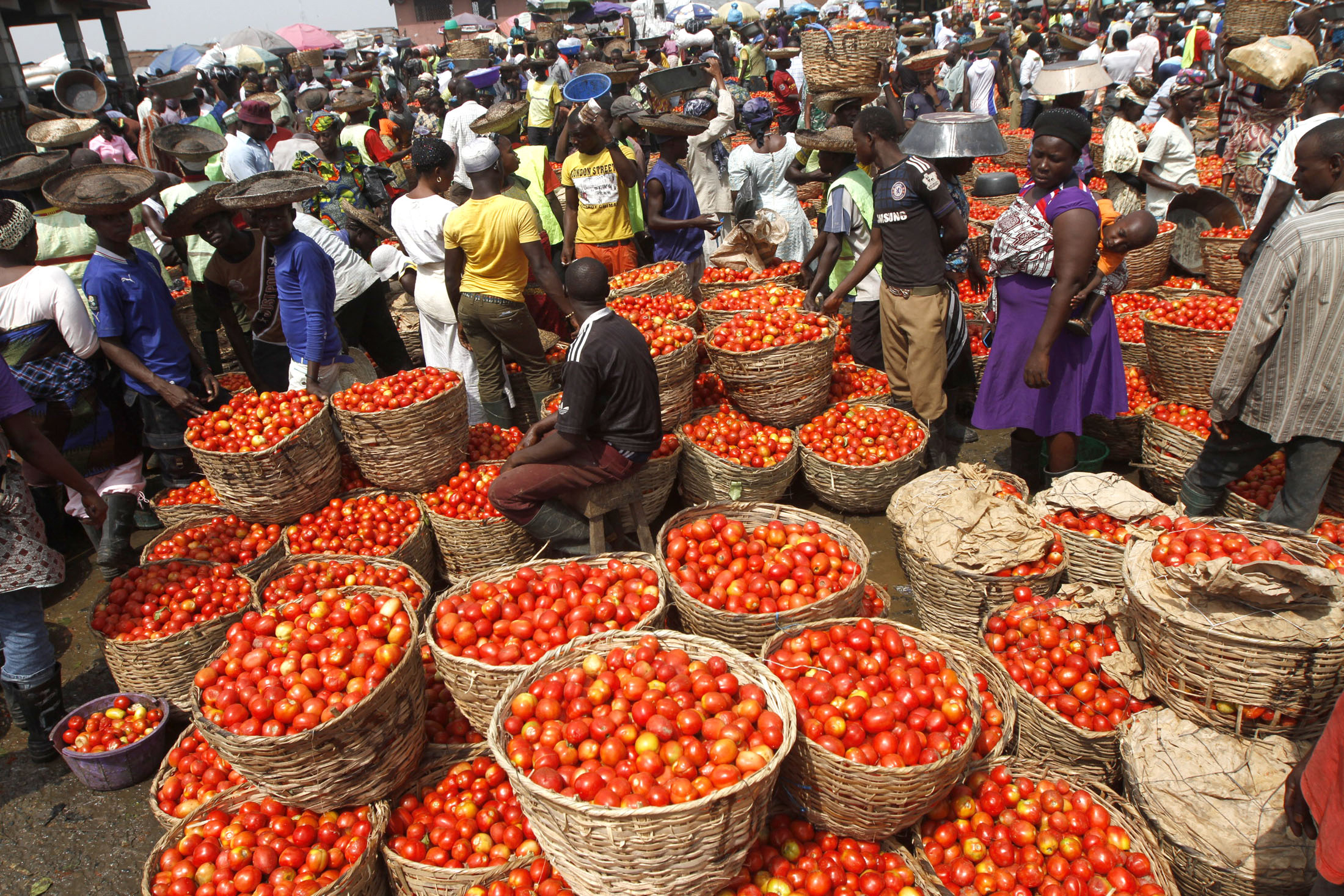As Muslims prepare for Eid El-Kabir festivities, they face a bitter reality: the skyrocketing price of fresh tomatoes in Lagos markets, surging by over 100% in May alone.
Traders attribute this surge to the usual seasonal shifts in tomato production, exacerbated by the onset of the rainy season. Umar Tanko, a seller at Mile 12 Market, disclosed that premium-quality tomato baskets, priced at N50,000-N80,000 in April, now fetch N140,000-N150,000. Lower-quality tomatoes, damaged during transit, sell for N60,000-N100,000, doubling last month’s prices.
Similarly, fresh pepper prices have spiked by almost 100%, with a custard bucket now selling at N8,000, compared to N3,000-N4,000 last month.
According to Shefiu, a vendor at Flour Food Market in Ikorodu, the supply shortage caused by the onset of the rainy season drives these price hikes. However, he offers tomatoes from Kano at a relatively lower price, bypassing Mile 12.
Similar price hikes persist across Nigerian cities like Effurun, Warri, Onitsha, and beyond, with baskets ranging from N110,000 to N140,000.
This surge compounds Nigeria’s existing inflation crisis. April marked the 16th consecutive month of year-on-year inflation growth, notably food inflation reaching 40.53%.
Notably, the SBM Intelligence Jollof Rice Index highlights the steep increase in cooking costs, primarily driven by tomato and fresh pepper prices. As Nigerians brace for Eid El-Kabir, these soaring prices could deepen household financial strains, echoing a looming “crisis at the table.”











